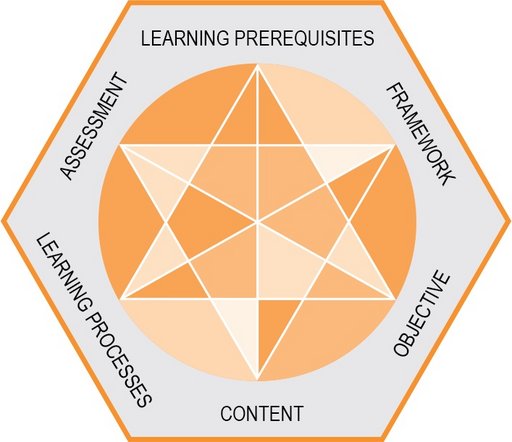Six important considerations when forming study groups
Study groups are important to the students’ academic learning outcomes and their sense of belonging to their programme. However, there is no clear answer as to how to create the best and most well-functioning study group. Yet, some factors can play a role in how the groups function.

Research from, among others, the Danish Evaluation Institute shows that study groups have a great positive impact on the students’ academic learning outcomes and sense of belonging in their programme. Therefore, it is beneficial to spend some time on creating well-functioning study groups.
However, there is no single recipe for how to create the best study groups:
“There is no one-size-fits-all solution. There are many ways to establish and use study groups. We cannot point to one single thing that is required for a study group to function well. However, we can identify some factors that may influence how the study groups will function. There are also some important considerations you need to make when deciding on what kind of study group suit the programme and the students most,” senior consultant at the CED Bente Kristiansen says.
Together with her colleagues, she has conducted a number of interviews about study groups at AU’s faculties to identify experiences with study groups.
The study group landscape at AU
Bente Kristiansen’s interviews revealed that AU has many different types of study group constellations. For example, in some programmes, the goal of the study groups is to create a sense of belonging while other programmes place greater emphasis on the academic learning outcomes.
“On some programmes, students change groups every third week during the first part of the first semester in order to get to know as many people as possible. The intention is not to find fixed study group partners from the beginning of the semester. Instead, the intention is that students will get to know the entire class. After week 42, they form fixed groups,” Bente Kristiansen says.
Another way to handle the formation and facilitation of study groups is to look at the students’ collaboration. For example, this can be done by using questionnaires. On certain degree programmes at AU, they use questionnaires to identify which roles the students are most likely to assume in group work. Among other things, this enables students to talk about what roles may be underrepresented in the group and evaluate why they may have trouble collaborating or completing projects.
In terms of the formation of study groups, in some programmes, the students form the groups themselves. In other programmes, the groups are established by someone else, and their working methods and conditions are predefined.
“The research within the area paints a very kaleidoscopic picture of how to create the best conditions for study groups. It often examines different and isolated aspects of study groups. Consequently, you cannot conclude that there is a right and wrong way to establish study groups at AU. However, there still are some factors that are relevant to consider when establishing study groups," Bente Kristiansen elaborates.
The didactic relationship model
Bente Kristiansen points to the didactic relationship model as a useful tool. The model highlights six factors that are important in learning situations, and they are also relevant to consider when establishing study groups:
- Objective: What is the primary goal of the study group work?
For example, is the goal of the study group work to create a sense of belonging or develop collaborative skills?
- Framework: What are the conditions of the work within the study groups?
For example, do the students set the framework themselves or is the structure, forms of collaboration, and tasks determined by the teacher or a student instructor?
- Content: How is the content of the study groups’ work defined?
For example, is the study group a project group in which members have obligations to one another or do the groups function solely as a study community?
- Assessment/evaluation: What will be the subject of assessment?
For example, will the students be assessed on their collaboration within the group and the group’s learning outcomes or will the learning outcomes be evaluated at the final exam, and thus not in relation to the group’s collaboration?
- Learning processes: What learning processes take place in the study groups?
For example, what learning processes do you want the study groups to go through and how should the actual learning take place? If you want to know what learning processes are happening, you need to consider how to facilitate the group work.
- Learning prerequisites: What are the students’ prerequisites for participating in study groups?
For example, you can consider which assumptions the students have about what it means to study at a given programme, and thus how these may affect the study group work.
“These six conditions have an impact on the life of the study groups and how they function. It is up to the teacher to decide to what extent they wish to take the different conditions into account. Four factors are specific while the factors ‘learning processes’ and ‘learning prerequisites’ can be more difficult to grasp. However, you can still consider which learning processes to aim for and you can try to address and verbalise the students’ assumptions and expectations,” Bente Kristiansen concludes.
Want to learn more?
Do you want to learn more about how to establish and work with study groups? The CED offers the workshop ‘Study groups – what to consider?’ At the workshop, you will have time to develop or revise your current practices.
- You can find more information about the workshop and register here.
- You can also read more about study groups at AU in Bente Kristiansen's report in Danish here: Studiegrupper – Hvordan gør vi?


